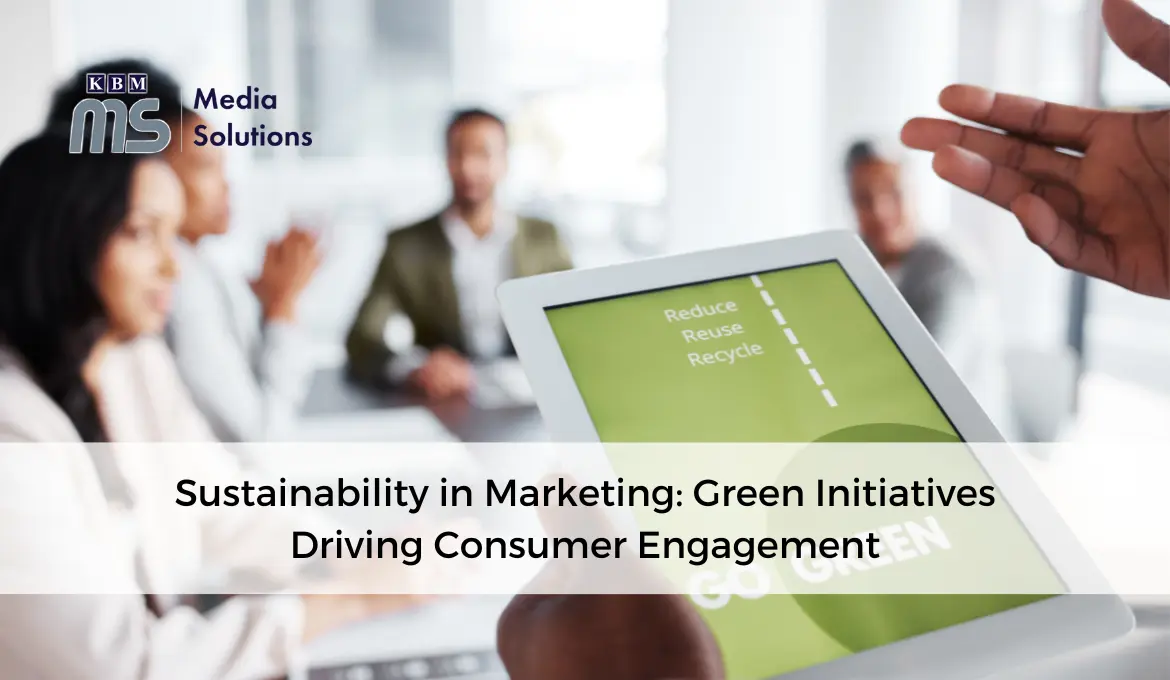Sustainability in Marketing: Green Initiatives Driving Consumer Engagement

Posted on May 07, 2024
In times when environmental consciousness is on the rise, consumers are increasingly prioritising sustainable and eco-friendly practices. As a result, businesses are recognising the importance of integrating sustainability into their marketing strategies to meet consumer expectations and contribute to positive environmental impact.In this article, we'll explore the growing significance of sustainability in marketing, how green initiatives drive consumer engagement and practical ways businesses can embrace sustainable practices in their marketing efforts.
The Rise of Sustainability in Marketing
Consumers today are more informed and environmentally conscious. They actively seek products and services that align with their values, especially those related to environmental sustainability. Businesses that incorporate sustainable approaches into their marketing techniques attract environmentally conscious consumers and contribute to the global concern towards a greener, more sustainable future.
- Building Brand Authenticity: Sustainability in marketing goes beyond a mere trend; it is about authenticity and genuine commitment to environmental responsibility. When businesses authentically embrace sustainability in their marketing efforts, people are more likely to trust the brand. Green initiatives should align with the company's core values and be integrated into its overall mission, creating a brand image that relates to consumers seeking authenticity.
- Appealing to Eco-Conscious Consumers: Many of today's consumers actively seek products and services that positively impact the environment. By incorporating sustainability into marketing campaigns, businesses can tap into this eco-conscious market segment. From eco-friendly packaging to carbon-neutral practices, companies can showcase their commitment to sustainability, attracting and retaining consumers who prioritise environmentally friendly choices.
- Creating Compelling Sustainability Narratives: Consumers connect with stories, and incorporating sustainability into your marketing allows for creating compelling narratives. Highlighting the journey towards sustainability, showcasing eco-friendly practices, and sharing success stories related to environmental impact create narratives that resonate with consumers. Such stories educate consumers about a brand's commitment and create an emotional connection that drives engagement.
- Differentiating in a Competitive Market: Sustainability has become a key differentiator. Businesses prioritising green initiatives stand out in a competitive landscape, attracting environmentally conscious consumers who seek out brands aligned with their values. This differentiation can be a powerful driver for consumer loyalty, as customers increasingly choose brands that contribute positively to environmental and social causes.
Practical Ways to Embrace Sustainability in Marketing
- Eco-Friendly Packaging: Choose sustainable and recyclable packaging materials to minimise the environmental impact of your products.
- Green Certifications: Obtain and display relevant green certifications to build trust with consumers who look for third-party verification of sustainable practices.
- Carbon Neutrality: Offset carbon emissions through carbon-neutral initiatives and communicate these efforts transparently to consumers.
- Ethical Sourcing: Emphasise using ethically sourced and sustainable materials in your products, showcasing a commitment to responsible business practices.
- Educational Content: Create content that educates consumers about sustainability, environmental issues, and the positive impact of their eco-conscious choices.
- Cause Marketing: Align your brand with environmental causes and donate a percentage of profits to support initiatives that resonate with your target audience.
The Bottom Line
Sustainability in marketing is not just a buzzword; it's a fundamental shift in consumer expectations and business practices. By incorporating green initiatives into marketing strategies, businesses contribute to a healthier planet and connect with an ever-growing eco-conscious consumer base. Building brand authenticity, appealing to environmentally conscious consumers, creating compelling sustainability narratives, and differentiating in a competitive market are all powerful ways sustainability can drive consumer engagement and contribute to long-term business success. As businesses embrace and prioritise sustainability, they play a crucial role in shaping a more sustainable future for the industry and the planet.